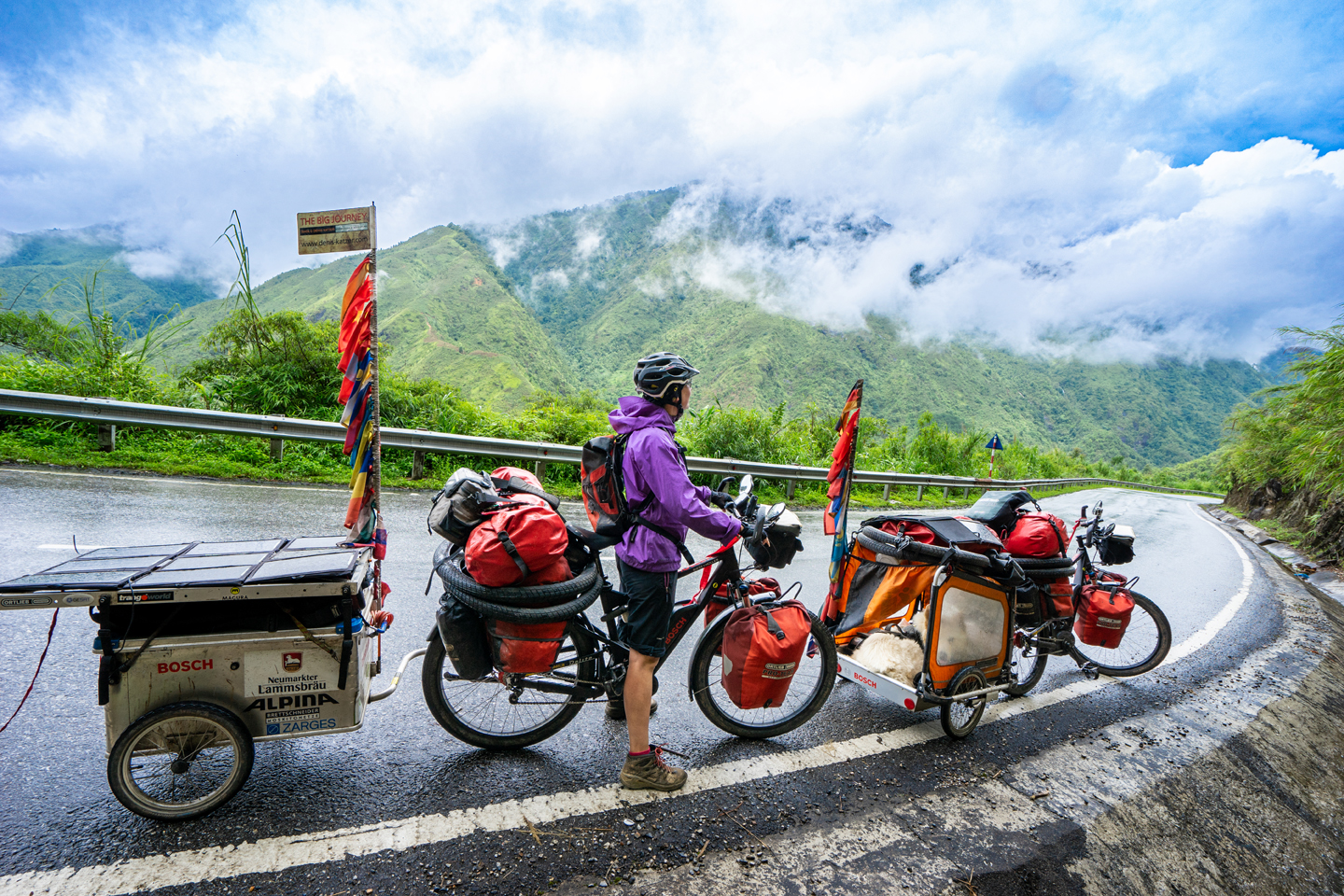
A beautiful day
N 51°33'22.7'' E 105°07'35.4''
Day: 73
Sunrise:
07:02 am
Sunset:
21:00
As the crow flies:
67.69 Km
Daily kilometers:
79.62 Km
Total kilometers:
13384.47 Km
Soil condition:
Asphalt
Temperature – Day (maximum):
20 °C
Temperature – day (minimum):
16 °C
Temperature – Night:
2 °C
Latitude:
51°33’22.7”
Longitude:
105°07’35.4”
Maximum height:
560 m above sea level
Maximum depth:
470 m above sea level
Time of departure:
11.10 a.m.
Arrival time:
6.30 p.m.
Average speed:
15.00 Km/h
We continue our cycle tour in beautiful weather. We leave the small town of Baikalsk behind us and enjoy the fresh air. Not so long ago, things were different here. The cellulose factory built in 1966 in the town of 17,000 inhabitants was one of the lake’s biggest water polluters. Around 40 million m³ of wastewater per year flowed untreated into the South Baikal. The pollution was such that some of the pollutants can even be detected in the fat of the Baikal seals. The large quantities of toxic sludge that are left to decompose in the ponds around the city and the gaseous emissions are also a considerable burden for the residents and forests in the surrounding area. International and national environmental movements, protests and pressure from UNESCO have apparently led to a temporary success after many years, because according to some residents, the plant has been shut down since 2008. A chance for Baikal, which has been on the World Heritage List since 1996, to recover a little. “The air has indeed become much better, but because the cellulose factory was the only major employer in the city, many people lost their jobs after it closed and have to travel all the way to Irkutsk to earn money. This is a real disadvantage for this region. There are also a lot of mosquitoes again. We used to be able to barbecue by the lake without mosquito repellent. Now they are literally biting us,” explained Nicolai, the bear hunter.
The road winds along at the foot of the high mountains. We catch a glimpse of a few clear-cut aisles that run through the mountain forests like gaping wounds. The reason for this is that Baikalsk has been the largest alpine ski resort in Siberia since the 1990s. Even Russian President Putin spent his skiing vacation here in 2002.
With maximum temperatures of 20 degrees, we make very good progress. The Baikal repeatedly peeps through the dense forests and delights us with its refreshing blue and seemingly endless expanse. The road winds along the Chamar-Daban Mountains and arches over one or other of its finger-like foothills. We are constantly going up and down the gentle inclines. Again and again we cross mountain rivers that feed the Baikal with their crystal-clear water. Traffic has decreased significantly since Irkutsk, making cycling a real pleasure again. Every few kilometers along the road there are locals selling mushrooms and blackberries or cranberries in large buckets. At this time of year, the taiga seems to be endlessly fertile. Again and again we see people roaming through the nearby forests to collect the wild, tasty fruits of nature. When the sun is already lower and its rays no longer hit our mother earth so hard, we stop next to a fish seller. Fresh omul, as the fish most often caught in Baikal is called, is being smoked in a large barrel. For 50 roubles (1.13 euros) we buy two of the delicious tasting sea creatures. After 80 kilometers, we reach a simple and inexpensive guestiniza in the village of Tanchoi, which costs 700 roubles (15.90 euros). “You’d better carry your bikes into the room,” suggests the landlady. “Why can’t we leave them on the first floor under the stairs? You lock the door in the evening, don’t you?” I ask. “Of course we lock the doors at night. But we also have a bar on the first floor. A lot of men from the village come here to drink. If they’ve had enough vodka, I can’t guarantee your bikes.”

